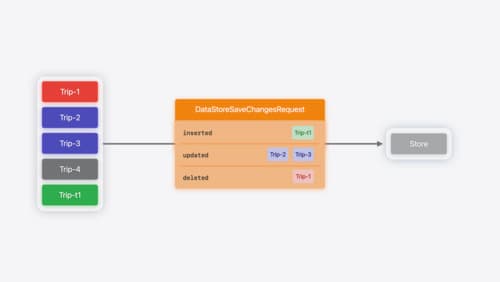How can I interact and manipulate SwiftData via widget?
Asked on 2024-10-20
1 search
To interact and manipulate SwiftData via a widget, you can leverage the integration of SwiftData with SwiftUI. SwiftData provides a framework that allows you to model and persist your app's data efficiently. By using SwiftData's APIs, you can connect and query models directly from your SwiftUI views, which can be used in widgets.
Here's a general approach to achieve this:
-
Model Your Data: Use SwiftData to define your data models. You can use the model macro to define your schema and take advantage of features like indexing and unique constraints to optimize data queries.
-
Query Data: Use SwiftData's query macros to fetch data from your model container. This allows you to populate your SwiftUI views with dynamic data.
-
Integrate with SwiftUI: Since SwiftData works seamlessly with SwiftUI, you can use SwiftUI's declarative syntax to build your widget's UI. You can create views that display data fetched from SwiftData.
-
Widget Configuration: Configure your widget to use the SwiftUI views that are connected to your SwiftData models. This allows the widget to display up-to-date information based on the data stored in SwiftData.
For more detailed information on how to adopt SwiftData in your app, you can refer to the session What’s new in SwiftData (01:01) which covers the adoption of SwiftData and its integration with SwiftUI.
Relevant Sessions

What’s new in SwiftData
SwiftData makes it easy to add persistence to your app with its expressive, declarative API. Learn about refinements to SwiftData, including compound uniqueness constraints, faster queries with #Index, queries in Xcode previews, and rich predicate expressions. Join us to explore how you can use all of these features to express richer models and improve performance in your app. To discover how to build a custom data store or use the history API in SwiftData, watch “Create a custom data store with SwiftData” and “Track model changes with SwiftData history”.

Create a custom data store with SwiftData
Combine the power of SwiftData’s expressive, declarative modeling API with your own persistence backend. Learn how to build a custom data store and explore how to progressively add persistence features in your app. To get the most out of this session, watch “Meet SwiftData” and “Model your schema with SwiftData” from WWDC23.

Platforms State of the Union
Discover the newest advancements on Apple platforms.
